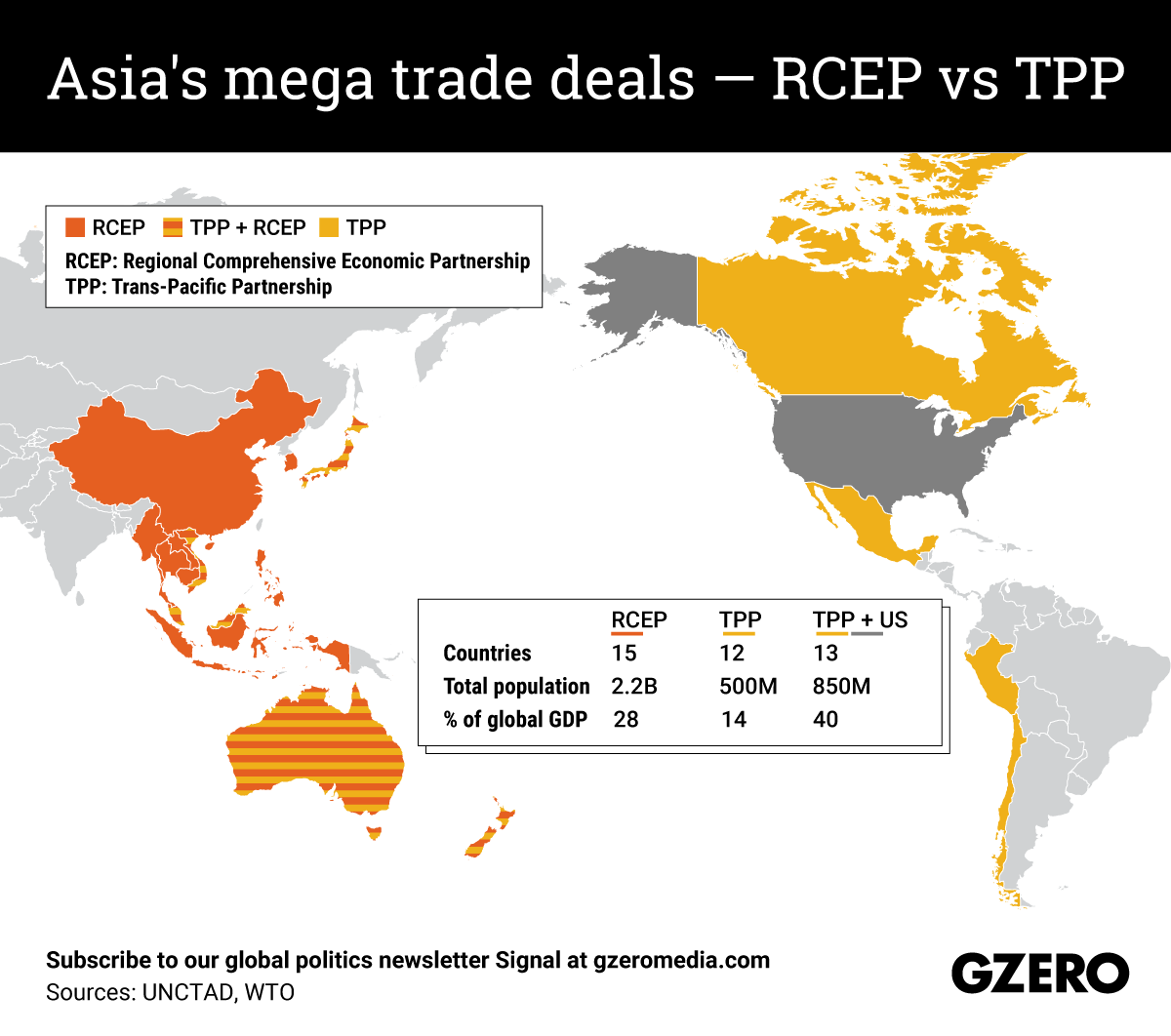The Graphic Truth: Asia's mega trade deals — RCEP vs TPP
On Sunday, 15 Asia-Pacific countries inked the Regional Comprehensive Economic Partnership, considered the biggest regional trade agreement ever signed. The RCEP includes China, which was left out of the Trans-Pacific Partnership, another mega regional trade deal pushed by the Obama administration in the US... until President Trump walked out of it on his first day in office in 2017. While the RCEP is a much wider agreement, covering more countries and around 2.2 billion consumers, it lacks the depth of the TPP, which carried strong protections for labor, the environment, and intellectual property. With the US, it would also have accounted for a larger share of global GDP than today's RCEP. Here we compare the RCEP to the current TPP, and to what the TPP would look like if the US had stayed in it.
